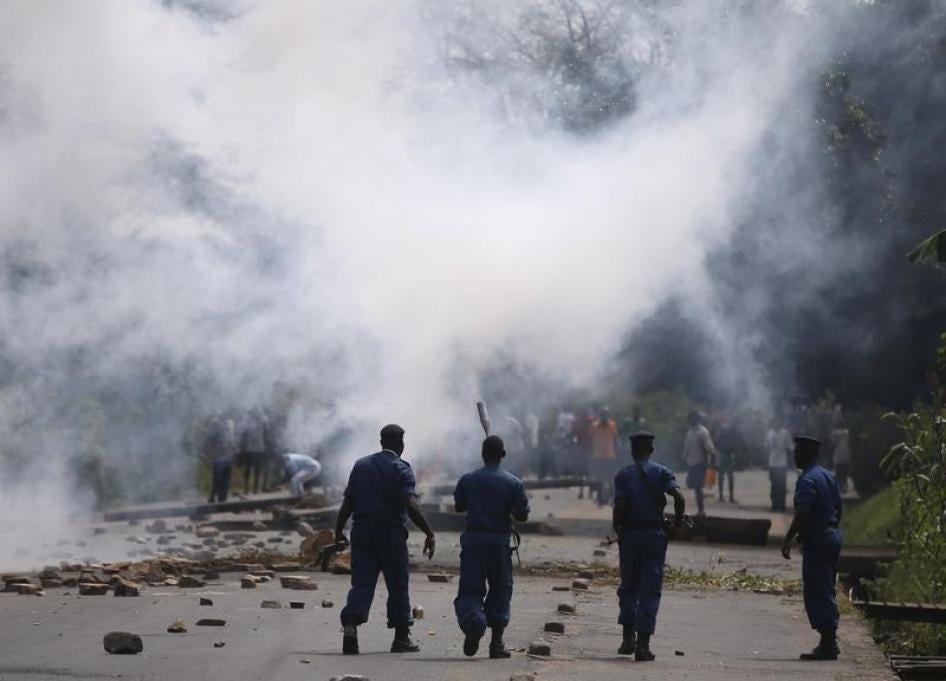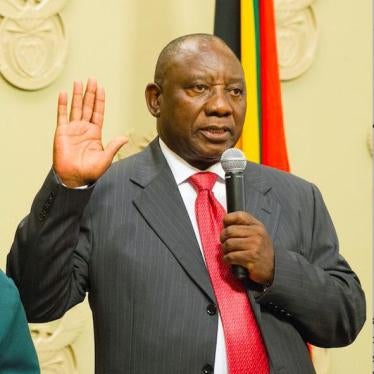After the Burundian government’s glaring absence at the fifth and final round of dialogue on October 30 under the East African Community’s initiative to resolve the crisis in that country, the talks ended with no tangible results.
The process has been hampered by regional leaders’ apparent lack of will to challenge President Pierre Nkurunziza on rights abuses or press for accountability. Many of them have their own human rights records to be concerned about.
The crisis began when Nkurunziza decided to run for a controversial third term in 2015. Security forces have killed hundreds of people as they quashed peaceful protests, the independent media and civil society organisations have been decimated and more than 390 000 Burundians have fled to neighbouring countries.
Nkurunziza cemented his hold on power with a constitutional referendum earlier this year. The vote — which he won and which enables him to stay in power until 2034 — was carried out amid widespread ill-treatment of citizens by local authorities, the police and members of the ruling party’s youth league, the Imbonerakure.
Human Rights Watch and other organisations continue to document accounts of “disappearances”, extrajudicial killings, rape and torture.
Some leaders in the region have used similar tactics to entrench their hold on power — attempting to maintain a veneer of democracy by holding referendums and elections, but cracking down on the political opposition and pro-democracy activists. This has made their involvement in efforts to resolve Burundi’s crisis appear less than genuine.
Important lessons should be learned from West Africa, where the regional block Ecowas — the Economic Community of West African States — has acted decisively in the face of attempts to undermine democracy and, at times, denounced human rights abuses and protected civilians. Ecowas, sometimes with the backing of the African Union, has taken a strong stance against unconstitutional seizures of power, including in Guinea in 2009, Guinea Bissau in 2012, Burkina Faso in 2015 and Mali in 2012. It has imposed travel bans and frozen the assets of rights abusers. In January 2017, it persuaded the Gambia’s former leader, Yahya Jammeh, to respect election results and step down.
Ecowas exemplifies how a commitment to human rights norms and democratic principles can trump financial constraints, differences between the region’s Anglophone and Francophone countries, and concerns about interference. A key driver of the bloc’s success is its groundbreaking 2001 Protocol on Democracy and Good Governance, which requires member states to fulfil the core principles of democratic governance, human rights and the rule of law.
Such efforts would be difficult to replicate today in Central and East Africa, where the dominance and solidarity among entrenched and often abusive leaders limit their ability to muster the political will to publicly denounce their counterparts’ rights violations.
Introducing “external” stakeholders with strong regional leverage and moral legitimacy might revitalise the process. A country such as South Africa should have a vested interest in helping to resolve Burundi’s crisis, given its historic role as a broker of the 2000 Arusha Peace process, when Nelson Mandela’s efforts helped to end the country’s 12-year civil war. A new South African-led initiative could move forward under the auspices of the AU.
By playing a leading role, South Africa — whose president, Cyril Ramaphosa, has made a commitment to restore Mandela’s legacy of leadership that transcends narrow national interests across Africa and beyond — would present fresh hope for resolving Burundi’s crisis.
Such an initiative would have the mandate to place justice and accountability firmly at the heart of the negotiations, reaffirming human rights norms laid out in the AU charter and its other key documents.
As illustrated by the Ecowas experience, regional peace and security are best secured when backed by a rights-based approach and a democratic agenda. In the case of Burundi, that requires African leadership to initiate and sustain a genuine rights-based security effort that can bring relief to victims, sanction rights abusers, avert mass atrocities and, ultimately, establish a foundation for stability and ethical regional leadership.










